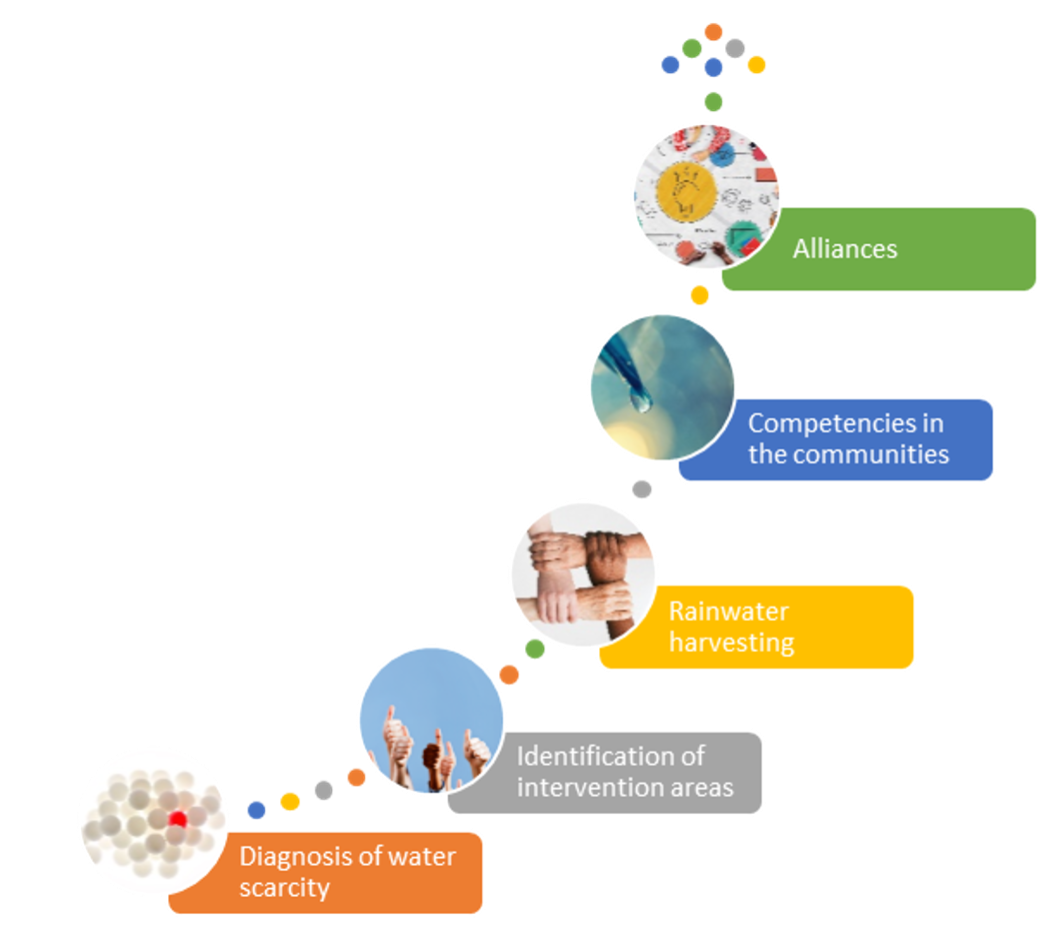"ECOH-Water" ECOH-Water is one of the selected One Health Funds projects for 2023.
Water is an irreplaceable resource for developing socioeconomic activities and maintaining life on the planet. According to projections, water scarcity will increase, especially in those countries vulnerable to the effects of climate change and accelerated population growth. The negative impacts of the water deficit are already visible in some regions of the planet.
Through the ECOH-WATER project, we will develop capacities for the access and use of rainwater in educational centers in Guatemala and Bolivia for sustainable consumption, adapting to the impacts generated by climate change through strategies based on local needs. To do this, we will first diagnose the areas at risk of drought using Geographic Information Systems (GIS) to prioritize interventions. In the selected areas, we will develop an Action Research study with a strong participatory component to involve communities in implementing a rainwater harvesting system. Additionally, we will implement educational strategies for developing skills in seeking rational and sustainable water use. The project will establish alliances with local actors for the project's sustainability.

The project includes professionals with different training areas, including environmental engineers, doctors, nurses, sociologists, and biologists from different partner institutions:
-
Universidad San Francisco Xavier de Chuquisaca, Bolivia: Apolonia Rodrigues Gonzales (PI), Carlos Fernando Gonzales Ortiz, Rosbeli Alizol Mendez Ramos, Luisa Orellana Salas, and María Teresa Solis Soto
-
Universidad San Carlos de Guatemala (Botanical Garden and Natural History Museum): Carolina Rosales de Zea
-
CIHLMU Alumni: Astrid Garrido and Mercedes Valle Asto
-
CIHLMU and Veronica Encina and Fausto Ignatov
The search for strategies to access quality water for human, animal, and environmental consumption is a worldwide priority. It must involve the communities, raise awareness about natural resources and risk behaviors, and work collaboratively with decision-makers. On the other hand, the transdisciplinary work proposed in this project will allow the search for solutions with an integral vision. On the other hand, this project highlights the south-south collaboration to generate learning, enhance local resources, and move toward our region's sustainable development.
Project responsible: Apolonia Rodríguez Gonzales
Universidad San Francisco Xavier de Chuquisaca, Bolivia
Email: rodriguez.apolonia@usfx.bo

